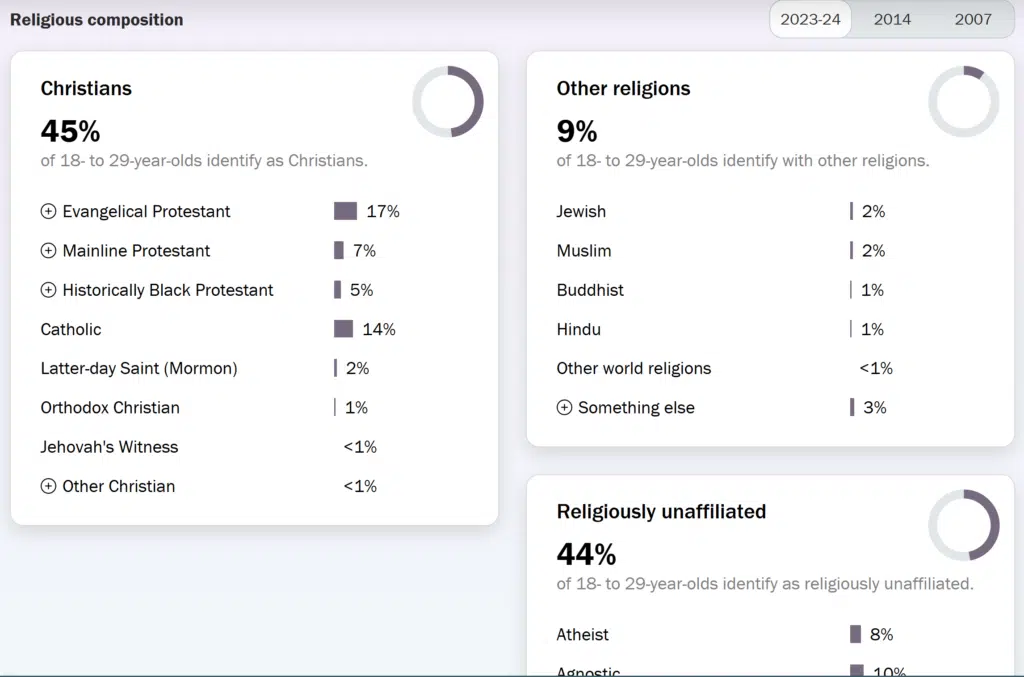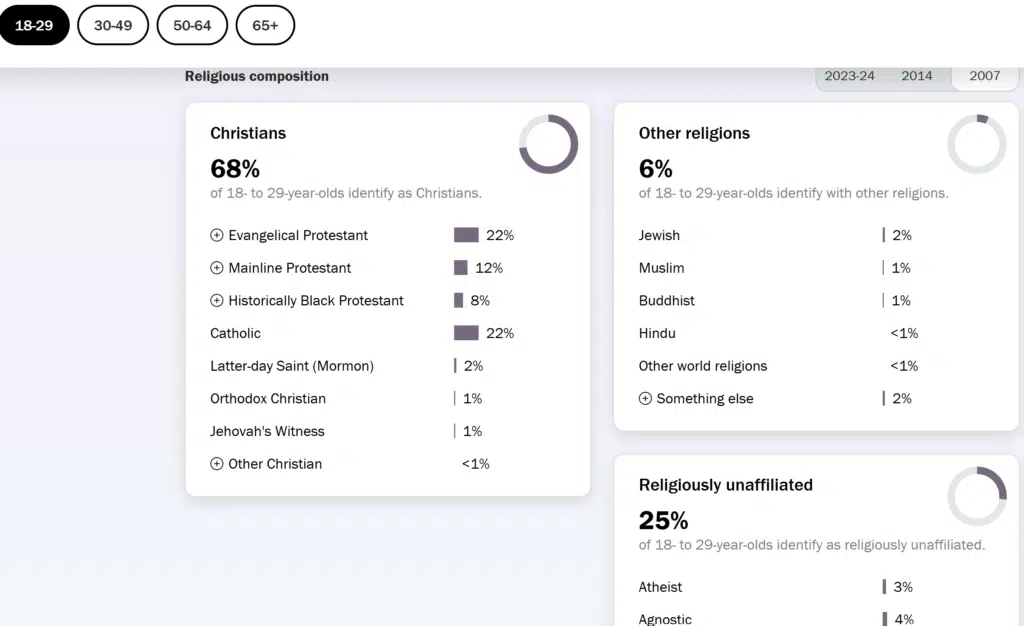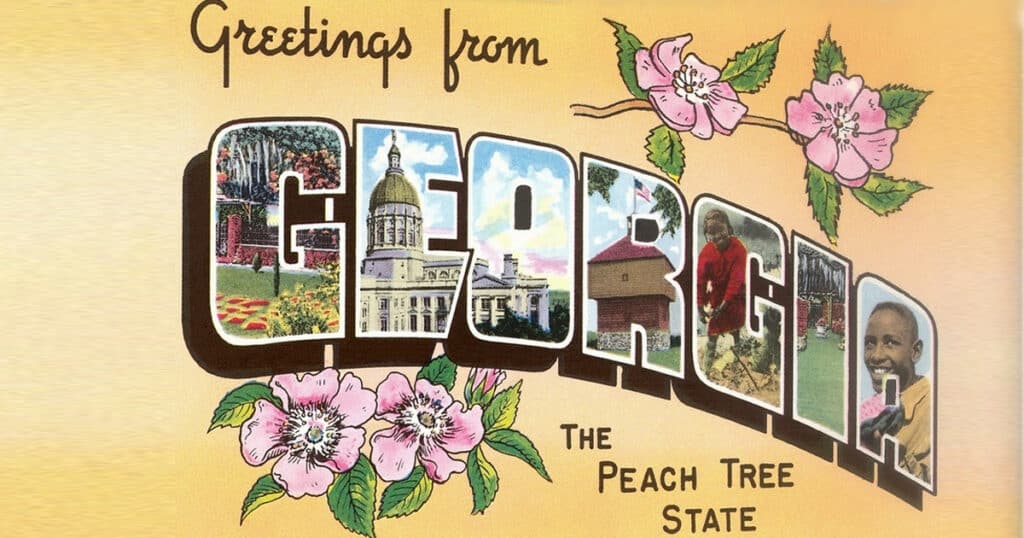
Reviewing the Pew Research Center’s Religious Landscape survey: Part 2
Today’s article will cover the findings in the the Pew Research Center‘s 2024 Religious Landscape Survey (RLS). In the first article of this series last month here on RVIVR, we discussed the overall findings in the Religious Landscape Survey. But for today’s article, we will dive into the religious beliefs and practices of American youth.
According to the Pew Research Center, only 45% of Americans ages 18-29 in this survey identify as Christian and 44% are religiously unaffiliated. What’s more, the largest group within the religiously unaffiliated group are those who identify as a “None” at 27%. Therefore, more young American adults identify as nonreligious than Roman Catholic or Evangelical Protestant.
The image below from the Pew Research Center shows the summarized data for the religious identification of young Americans in 2023-2024.

Now, Pew Research also shows the data from the 2007 Religious Landscape data for 18-29 year old Americans. In the 2007 RLS, 68% of 18-29 respondents in this survey identified as Christian. Over a seventeen year span (between 2007 and 2024), there was a 23% drop in the amount of American 18-29 year olds identifying as Christian in this survey.

In Pew‘s report on the 2024 Religious Landscape survey, researchers point out that young Americans more likely to become less religious than to become more religious over the course of their lives.
“The new RLS also finds that more young adults say their religiousness has decreased than say it has increased. By contrast, older U.S. adults are more likely to say their religiousness has increased than that it has decreased.“
After viewing the data, the future outlook of American Christianity among Generation Z & Millennials may appear fairly bleak. By all accounts, younger Americans identify as less Christian as older Americans and are less likely to engage in Christian practices.
Nevertheless, the point of this article is not to “blackpill” or despair over the current situation when it comes to American youth. In the long history of Christianity, there have been more perilous times when it’s come to the future of the one true faith. My goal is to emphasize the need for American Christians to evangelize and promote the Christian faith to American young adults.
May God bless our nation, and let’s hope and pray that America’s young adults would turn to Christ in the coming years. The future of American Christianity depends on it.



